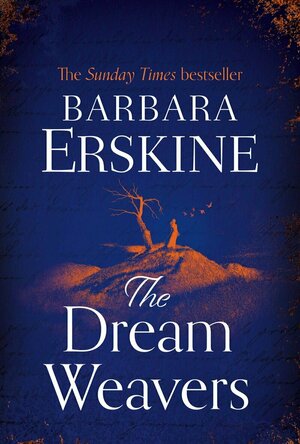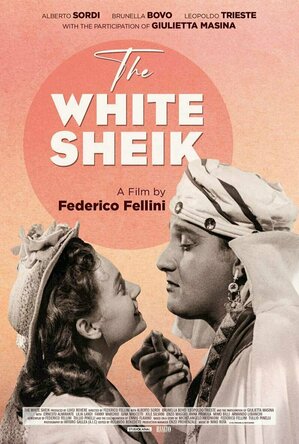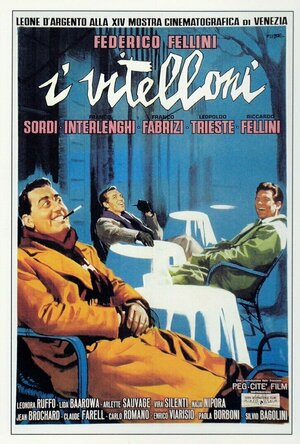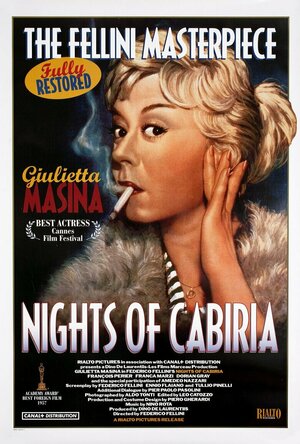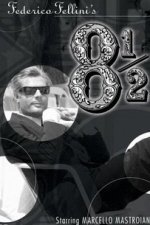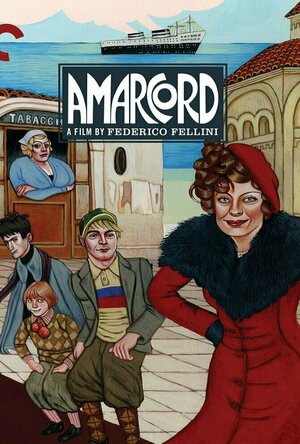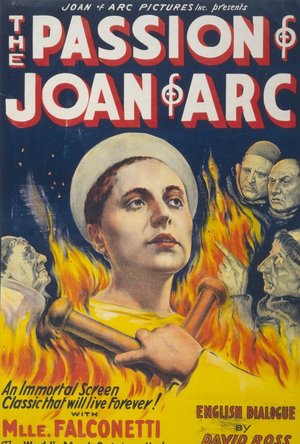Search
Search results
BookwormMama14 (18 KP) rated VeggieTales Every Day with God: 365 Daily Devos for Boys in Books
Jan 2, 2019
Filled with colorful characters and excellent life lessons VeggieTales Every Day with God: 365 Daily Devos is a great addition to our daily routine. Since I have 2 boys (aged 2 and 4), I got the devotional book for boys...Shocker, I know. All the characters on the pages are the guys from VeggieTales, Bob, Larry, Junior, Larry Boy, Pa Grape, Mr. Lunt etc. Each page is labeled as Day 1, 2, 3...Instead of the dates. The devotion for the day is only one page, which is perfect for my active boys who don't like to sit still for very long. The devo starts with a title such as "It's Good to Have Good Friends" and "Jesus Loves You!" a coinciding scripture is next, the version varies depending on the verse. There are about 16 different versions of the bible used in this devotional. There is a 2-3 paragraph devo, followed by a "Thought of the Day" and "Pray Today" prayer. There are also several verses for memorization in the back of the book. The language is easy to understand and the lessons are great. From learning about spiritual gifts, God's love being real, and God's provision...to honesty, giving God your worries, being willing to forgive. There is something new every day for your kids to learn. The boys love this book and I even see my 4 year old "reading" it on his own. My 2 year old is a little young for it, but I believe this book is great for establishing the habit of daily devotions for both of the boys.
I received a free copy of VeggieTales Every Day with God: 365 Daily Devos for Boys through FlyBy Promotions in exchange for my honest review. All opinions expressed are mine alone.
I received a free copy of VeggieTales Every Day with God: 365 Daily Devos for Boys through FlyBy Promotions in exchange for my honest review. All opinions expressed are mine alone.
Lindsay (1760 KP) rated Eye of the Eagle in Books
Jan 19, 2019
Well when you first open this book, you think oh another romance like every other one that happens in the office. The author put us in for a what would be typical but it nothing like a typical romance book. I really do like that this not all romance. There is action involved and even some power in followed.
You seem to get not only spiritual powers and some Native American culture but you get a story or plot full of government talents and bring in someone new and really cute looking. Then there a budding romance before they leave the office.
This got all kinds of powers involved. The hero and Heroine become a team. What you do if someone could eagle shifter? He looks human and act all human? What does a little ugly man doing? We seem to have it all.
It starts out with a child missing and no other then Bert's family member. He does not want his boss to come. She intents on want to go with him. She determine to help. Things start to happen as soon as they get here at the hotel. She has secrets as well has Bret Blackfeather? What are Phoebes and her mother secrets? Seems not all now about his secret other then family possibly.
The characters are created and developed quite well. I love that we learn more each character though out the story. We do not get all them until the end of the book. We got not only the bad guys but also the good guys in full development.
Is Bert family in danger and why? Seem the US Senator daughter get caught up with someone from Bert past and with an enemy of the US. The Monster as Phoebe calls him see to be into human tracking and other crimes.
You seem to get not only spiritual powers and some Native American culture but you get a story or plot full of government talents and bring in someone new and really cute looking. Then there a budding romance before they leave the office.
This got all kinds of powers involved. The hero and Heroine become a team. What you do if someone could eagle shifter? He looks human and act all human? What does a little ugly man doing? We seem to have it all.
It starts out with a child missing and no other then Bert's family member. He does not want his boss to come. She intents on want to go with him. She determine to help. Things start to happen as soon as they get here at the hotel. She has secrets as well has Bret Blackfeather? What are Phoebes and her mother secrets? Seems not all now about his secret other then family possibly.
The characters are created and developed quite well. I love that we learn more each character though out the story. We do not get all them until the end of the book. We got not only the bad guys but also the good guys in full development.
Is Bert family in danger and why? Seem the US Senator daughter get caught up with someone from Bert past and with an enemy of the US. The Monster as Phoebe calls him see to be into human tracking and other crimes.
TravelersWife4Life (31 KP) rated Lu. (Modern Faith, #1) in Books
Feb 23, 2021
Where should I start…
The story of Lu was interesting. Beth Troy wrote the story in a way that made me feel like I was Lu; that I was the person going through struggles and learning to work through them. Lu is a strong character who knew what she wanted in life (or thought she did), she is a very dedicated person; someone dedicated to finding the truth, not just accepting what others tell her. Lu’s thought process was very realistic, and her thoughts were something that most of us think at one point or another in our lives, but that we very rarely voice. Beth Troy did a great job of giving voice to those thoughts and showing that there is a time for every season in life.
I do wish that the ending of the book had been a bit different. I wanted Lu to not make the choices that she did, however, I understand that Beth Troy was showing that we all make mistakes and wrong choices in life. But that God will be there for us always, through the good choices and the bad.
I give this book 4 out of 5 stars for the frank spiritual battles, the well-developed storyline, and most of all for Lu.
*This book does contain some mild swearing, and some sexual content (nothing detailed, just implied). I do not particularly care for it, however, that stuff happens all around us. It is naïve of us to think otherwise. I relate it to how Rachel Hauck uses those elements of real life in her books to depict life without Jesus.
**I volunteered to read this book in return for my honest feedback. The thoughts and opinions expressed within are my own.
The story of Lu was interesting. Beth Troy wrote the story in a way that made me feel like I was Lu; that I was the person going through struggles and learning to work through them. Lu is a strong character who knew what she wanted in life (or thought she did), she is a very dedicated person; someone dedicated to finding the truth, not just accepting what others tell her. Lu’s thought process was very realistic, and her thoughts were something that most of us think at one point or another in our lives, but that we very rarely voice. Beth Troy did a great job of giving voice to those thoughts and showing that there is a time for every season in life.
I do wish that the ending of the book had been a bit different. I wanted Lu to not make the choices that she did, however, I understand that Beth Troy was showing that we all make mistakes and wrong choices in life. But that God will be there for us always, through the good choices and the bad.
I give this book 4 out of 5 stars for the frank spiritual battles, the well-developed storyline, and most of all for Lu.
*This book does contain some mild swearing, and some sexual content (nothing detailed, just implied). I do not particularly care for it, however, that stuff happens all around us. It is naïve of us to think otherwise. I relate it to how Rachel Hauck uses those elements of real life in her books to depict life without Jesus.
**I volunteered to read this book in return for my honest feedback. The thoughts and opinions expressed within are my own.
ClareR (5885 KP) rated The Dream Weavers in Books
Apr 25, 2021
The Dream Weavers is an historical fiction novel, with one foot in Saxon Mercia and the other in modern day Hereford. There’s a touch of the supernatural as well - all the better to see the past with. And I loved reading it.
Simon is writing a book of Anglo-Saxon history, and starts to hear a woman calling a name outside his rented cottage. When he goes out to look, no one is there.
The cottage owner brings in her local spiritual advisor, Bea, who hopes to put the ghost outside to rest. This is only the beginning.
The timelines alternate between King Offa’s daughter, Eadburh, and Bea’s life in Hereford with her husband who is a priest at the cathedral.
I honestly didn’t think I’d enjoy this - but I really did! It uses religion without being overly religious, and the same goes for the more Pagan elements. It was a a really interesting, highly readable book. I haven’t read much about the history around King Offa’s time, so I enjoyed the opportunity to do that. It was a book that was difficult to put down - except that was done for me, as I read a stave a day on The Pigeonhole! It’s a big book, but it really didn’t feel that way. It sent me off on little internet searches as well - namely Anchorites, and what types of dogs Anglo-Saxons kept as pets (and whether they did or not!). I like a book that interests me enough to read around it!
This is definitely one for the historical fiction fans, especially those that like a bit of the magical element as well. I loved reading it!
Many thanks to The Pigeonhole, and to HarperCollins for giving me access via NetGalley for an honest review.
Simon is writing a book of Anglo-Saxon history, and starts to hear a woman calling a name outside his rented cottage. When he goes out to look, no one is there.
The cottage owner brings in her local spiritual advisor, Bea, who hopes to put the ghost outside to rest. This is only the beginning.
The timelines alternate between King Offa’s daughter, Eadburh, and Bea’s life in Hereford with her husband who is a priest at the cathedral.
I honestly didn’t think I’d enjoy this - but I really did! It uses religion without being overly religious, and the same goes for the more Pagan elements. It was a a really interesting, highly readable book. I haven’t read much about the history around King Offa’s time, so I enjoyed the opportunity to do that. It was a book that was difficult to put down - except that was done for me, as I read a stave a day on The Pigeonhole! It’s a big book, but it really didn’t feel that way. It sent me off on little internet searches as well - namely Anchorites, and what types of dogs Anglo-Saxons kept as pets (and whether they did or not!). I like a book that interests me enough to read around it!
This is definitely one for the historical fiction fans, especially those that like a bit of the magical element as well. I loved reading it!
Many thanks to The Pigeonhole, and to HarperCollins for giving me access via NetGalley for an honest review.
Greg Mottola recommended The White Sheik (1952) in Movies (curated)
Greg Mottola recommended I Vitelloni (1953) in Movies (curated)
Greg Mottola recommended Nights of Cabiria (1957) in Movies (curated)
Greg Mottola recommended 8 1/2 (1963) in Movies (curated)
Greg Mottola recommended Amarcord (1973) in Movies (curated)
Kirk Bage (1775 KP) rated The Passion of Joan of Arc (1928) in Movies
Jan 28, 2021
This was another first for me. Previous to watching this silent “masterpiece” Dreyer was a name I had only read in film history essays and when anyone writing for Sight and Sound wants to look clever. As a stepping stone to what could be achieved it is of course a valuable historic document. As a film to be enjoyed almost 100 years later, it is all but unwatchable at 110 minutes. There is perhaps a half hour’s worth of story and images, merely extended and repeated to an excruciating degree. It’s not that it is silent, or has very strange religious overtones that don’t resonate now in the same way they once might – because it is very beautiful and remarkable in small sections – it is that a monotony of accusation, followed by denial, followed by crying, followed by spiritual revelation is all there is to it. And it goes on and on and on until you really could not care less.
The story of Joan of Arc is extraordinary, but this is not the story of Joan of Arc, it is her passion only, as in her trial and execution. The close ups of Maria Falconetti as the eponymous saint are all you can really take away from it in the end. Her odd beauty and commitment to the role do leave a lasting impression, but the two dimensional fire and brimstone evil of her accusers is just too much, even comic, to behold and believe in 2021. For study purposes, seeing where certain techniques and shot ideas had their Genesis, for example, it is of great interest. As a film to watch and enjoy it has sadly outlived its worth. When you consider Fritz Lang’s M was only 3 years later, it all comes into context.
The story of Joan of Arc is extraordinary, but this is not the story of Joan of Arc, it is her passion only, as in her trial and execution. The close ups of Maria Falconetti as the eponymous saint are all you can really take away from it in the end. Her odd beauty and commitment to the role do leave a lasting impression, but the two dimensional fire and brimstone evil of her accusers is just too much, even comic, to behold and believe in 2021. For study purposes, seeing where certain techniques and shot ideas had their Genesis, for example, it is of great interest. As a film to watch and enjoy it has sadly outlived its worth. When you consider Fritz Lang’s M was only 3 years later, it all comes into context.



